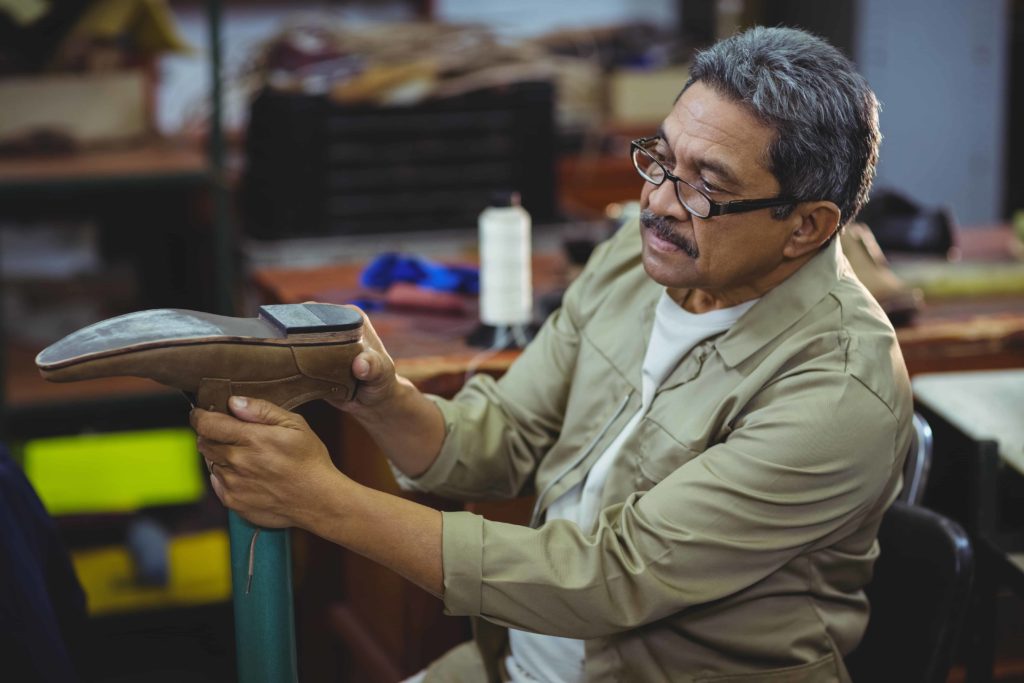
TPS For My Husband Was Terminated Due To Minor Convictions. Can He Still Become A Permanent Resident?
Question:
“Saul and I married last month. I filed a petition for his green card two weeks ago. He was born in Nicaragua. He started receiving TPS in 1999. Two days ago, he got a letter from the government denying his re-registration and withdrawing his TPS because he had two misdemeanor convictions. They happened in 2007 and 2008. How can he fight the denial? Is this going to cause problems for his permanent residence case?”
(Submitted by Denise D., Indio, CA)
Answer:
Your question raises some complicated issues. I’ll tackle them one-at-a-time.
Let’s begin with the TPS rule regarding convictions mentioned. Because it is relatively new, there are some unknowns about how it might apply in Saul’s case. Thus, I’ll need to speculate a little about convictions could affect him.
Editor’s Note: Although most cases for TPS clients from Indio are handled at our Hemet Immigration Office, the answer provided here applies to cases on a nationwide basis.
Can TPS Holders Qualify For Green Cards Even If Their TPS Status Has Ended?
The short answer is that Saul may still be able to win permanent resident status.
But how an immigrant’s TPS status ended could affect that person’s future options.
- For instance, if TPS benefits are lost because your country’s designation expires, and the government does not renew its designation, that is one type of status termination.
- If an immigrant lost his status because he failed to re-register, or failed to re-register on time, that is a second type of status termination.
- A third type of status termination occurs when an immigrant violates the rules for TPS and is denied the right to re-register.
Saul’s situation fits into the latter example. The government intends to deny his re-registration based on his convictions.
The convictions place him on shaky grounds.
How Do Misdemeanor Convictions Affect Temporary Protected Status Beneficiaries?
Under Temporary Protected Status law, two misdemeanor convictions can lead to the denial of re-registration and disqualify a beneficiary from ongoing TPS benefits.
In general, a misdemeanor is a crime that is punishable by imprisonment between 6 days and one year. This means, for TPS, a crime which carries a maximum punishment of five days or less of incarceration is not a misdemeanor.
This means your father has two such convictions.
However, in some states, certain offenses may impose a sentence of more than five days in jail, yet not constitute misdemenors. Thus, you should verify if your father’s convictions are misdemeanors for purposes of TPS.
If not, the application of this regulation can be challenged.
Even though I don’t know the details of his convictions, it is conceivable that the nature of Saul’s misdemeanors might not warrant the termination of his TPS status. He would need to promptly file a motion to reopen and reconsider the U.S. Citizenship and Immigration Service decision, since there is a 30-day limit for such challenges to be filed.
Given the possible negative impact of the TPS termination on Saul’s efforts to become a green card holder, he should strongly consider looking into the possibility of contesting the decision.
He should consult with an immigration appeals attorney to ensure the decision to deny his re-registration and withdraw his status is not based on a legal or factual error.

BATARA IMMIGRATION LAW INSIGHTS
8 Ways TPS Beneficiaries Can Win Permanent Residence (Even If TPS Is Terminated)
What Is The Impact Of Minor Convictions On Permanent Residence For TPS Holders?
On the other hand, the two misdemeanor convictions rule which disqualifies a person from TPS benefits does not disqualify an immigrant when they seek permanent resident status.
Moreover, the types of convictions which cause termination of temporary protected status do not automatically prohibit a person from winning a green card.
If there are no other complications, the immigrant relative petition you filed is likely to be approved. This will enable him to move to the second step of the permanent residence process, filing an application for a green card.
However, unless Saul is still in active TPS status at the time he seeks permanent residency, the two misdemeanors might affect how he must proceed forward.
Once he loses his TPS status, he will begin to accrue time in unlawful presence. This could prevent him from attending a permanent residence interview in the United States.
What Is The Impact Of Unlawful Entry And Unlawful Presence For TPS Holders?
Even if Saul fights the decision and retains his TPS status, he might still be subject to the rules regarding unlawful presence.
For instance, you did not tell me how or when Saul entered the U.S. Thus, I am going to make a few assumptions.
I am going to assume Saul entered the U.S. without permission and that he did not receive TPS benefits until after his 18th birthday. If either of these assumptions are wrong, then my analysis and response may be totally inapplicable to his situation.
This means Saul may have to return to his home county for an interview for a green card.
I am making these assumptions because they fit the profile for the majority of Nicaraguan immigrants who have received TPS benefits. If on the other hand, he entered lawfully, he might be eligible to seek to adjust status to permanent residence through his relationship as an immigrant married to a U.S. citizen via an interview at a local USCIS office.
(This is based on the assumption that you are a U.S. citizen, another point you did not address in your question.)
Due to their unlawful status in the United States before they were granted TPS benefits, most TPS beneficiaries have to return to their home county for an interview if they seek a green card through a spouse or other family member.
There is no guarantee that they will be allowed to come back unless they are given special permission, via a family unity I-601 waiver, to legally re-enter the U.S. These types of waivers are difficult to win and cause problems for many immigrant families.
This means Saul may have to return to his home county for an interview for a green card.
The Impact Of The Government Delay In Reviewing Convictions
It is unclear why the government did not bring up Saul’s convictions until recently.
The convictions happened a long time ago. Since that time, Saul re-registered for Nicaragua TPS benefits every 18 months. He was continuously approved.
Why the difference this time?
It could be that it took this long for his convictions to be added into the government’s data base.
I’d like to quickly focus on what I think is a quite important aspect of the delay.
The absence of immigration fraud.
As long as Saul never omitted any relevant information on his re-registration applications, he cannot be accused of immigration fraud.
If he had been responsible for the delayed finding of his convictions, the decision would likely have noted his failure to provide requested information. Since that issue was not mentioned, the error is on the government.
You’re probably wondering if the delay can be used to fight the re-registration denial
Nope. The government’s neglect in bringing up the convictions sooner cannot be used to offset the withdrawal of Saul’s TPS status.
Whatever the reason for the delay, the government could have asserted Saul’s convictions disqualified him from TPS and filed deportation charges against him many years ago.
Instead, the delay has worked in his favor.
Thanks to the combination of the recent court decisions and your marriage, the failure to deny re-registration sooner has provided Saul with the opportunity to now defend himself against deportation charges as a beneficiary under the family-based petition you filed for him.
Of course, since the full impact of the new TPS rule is not yet clear, if Saul is summoned to immigration court, he should not represent himself.
I’m fairly sure, with you at his side, he won’t take that risk.
Ready to take a serious and honest look at the strengths and weaknesses of your immigration case? Let’s get started with a personalized strategy and planning consultation . . .





